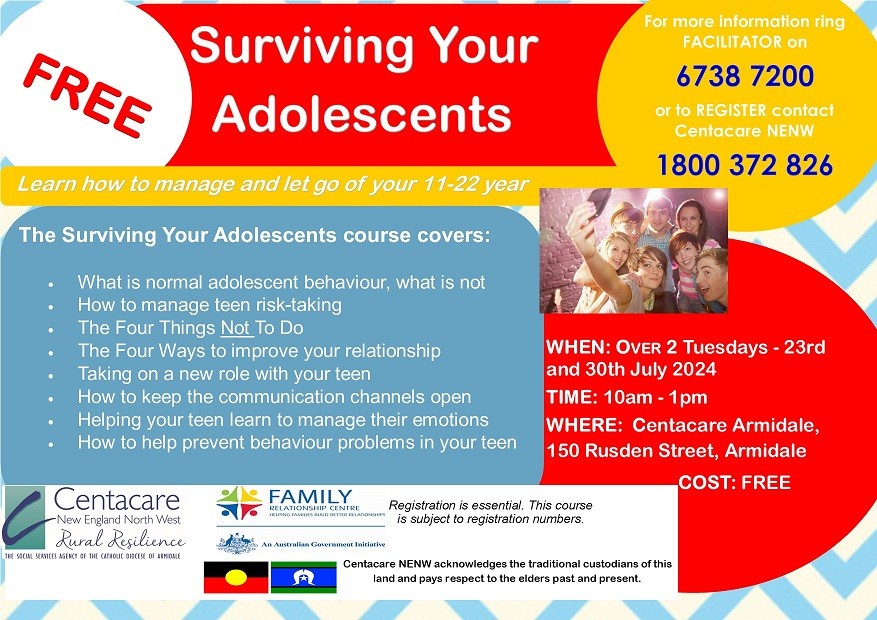Surviving Your Adolescents

The Surviving Your Adolescents course covers:
• What is normal adolescent behaviour, what is not
• How to manage teen risk-taking
• The Four Things Not To Do
• The Four Ways to improve your relationship
• Taking on a new role with your teen
• How to keep the communication channels open
• Helping your teen learn to manage their emotions
• How to help prevent behaviour problems in your teen
WHEN: OVER 2 Tuesdays – 23rd and 30th July 2024
TIME: 10am - 1pm
WHERE: Centacare Armidale, 150 Rusden Street, Armidale
COST: FREE
For more information ring FACILITATOR on 6738 7200
or to REGISTER contact Centacare NENW 1800 372 826
Advice for parents of teenagers
Establish clear boundaries with your teenager
Setting boundaries with your teen is an important part of helping them gain independence while also keeping them safe.
Monitor your teen's social media activity
While your teen is entitled to a level of privacy you should respect as a parent, navigating the role social media plays in their day-to-day lives can be tricky. There are benefits that come with such easy access to the digital world; however, it also creates a myriad of potential issues and dangers.
Communicate openly with your teenager
Our best advice for parents of teenagers is to be someone they can confide in. By establishing yourself as both a parent and a confidant, they’ll feel more comfortable opening up to you.
Validate your teen's feelings
Some parents make the mistake of dismissing their teenager’s emotions to teach them perspective or because they don’t believe their feelings are valid.
When a person’s feelings are invalidated, they believe their emotions aren’t being communicated or received, leaving their needs unmet. This can cause them to escalate their reactions and – if this continues to occur – may lead them to experience emotion dysregulation.
Whether your teen is stressed, struggling, upset, angry, happy or triumphant – listen, empathise and validate their feelings so they feel heard and understood.
Treat your teenager like a young adult
Put yourself in your teen's shoes and consider: what do teenagers want from their parents? While they might be free from the full weight of adult responsibility and still require rules and consequences, they’re at a period of life where they crave independence and equal treatment.

